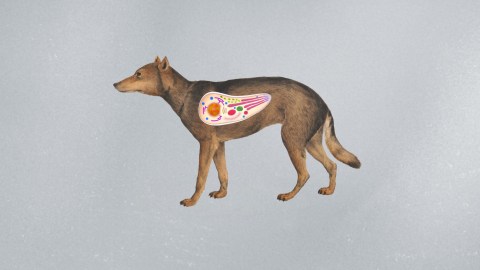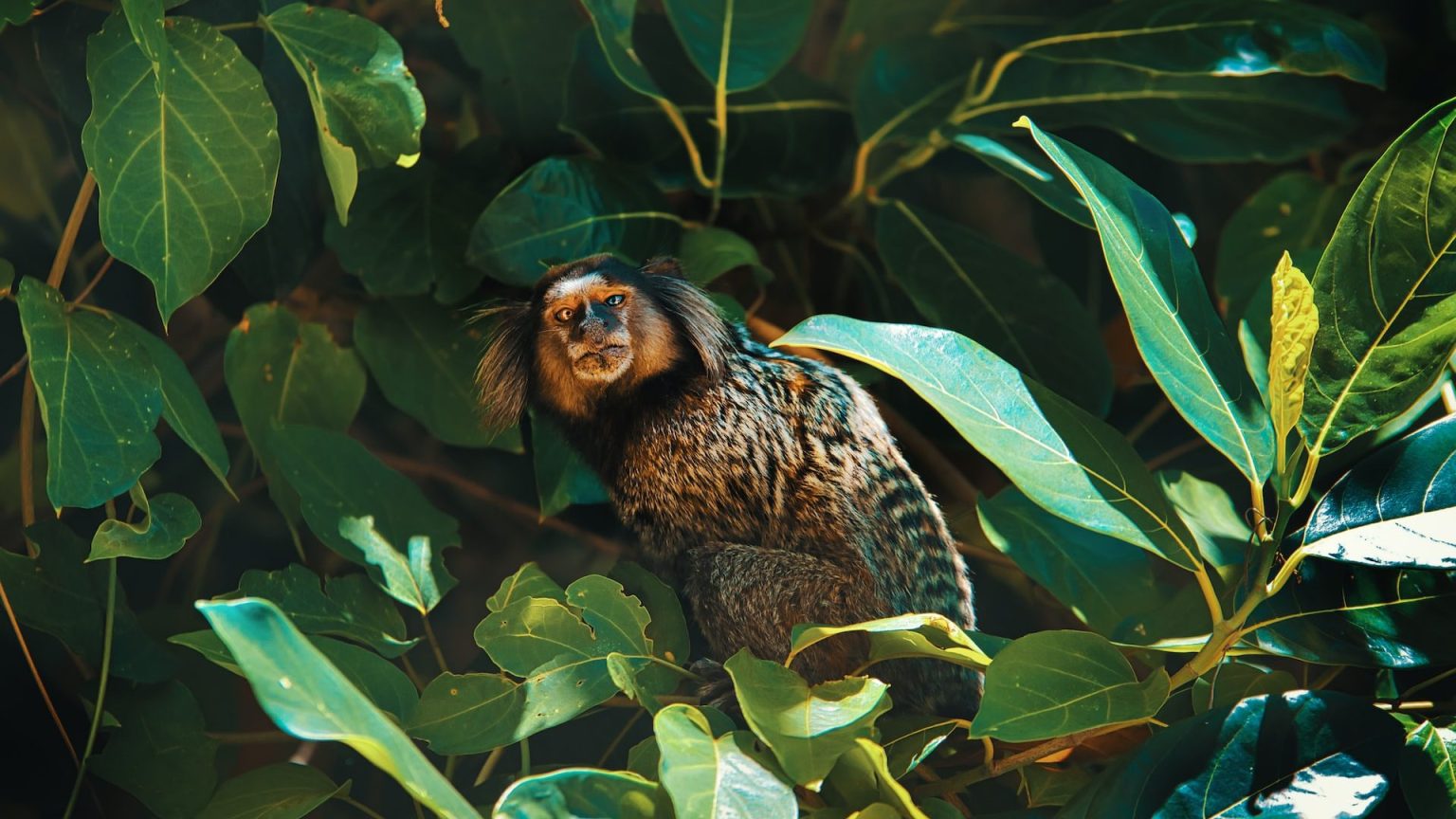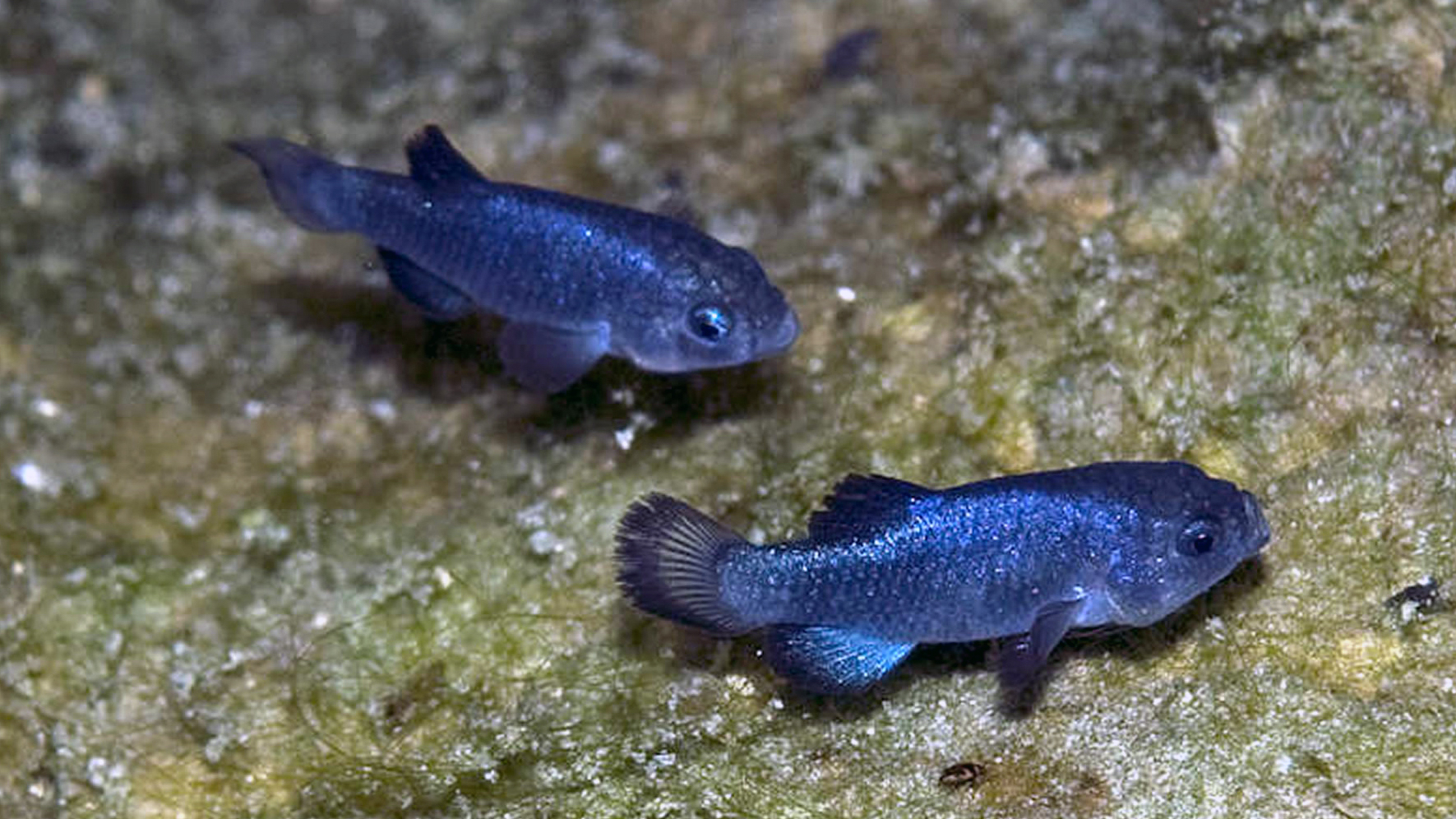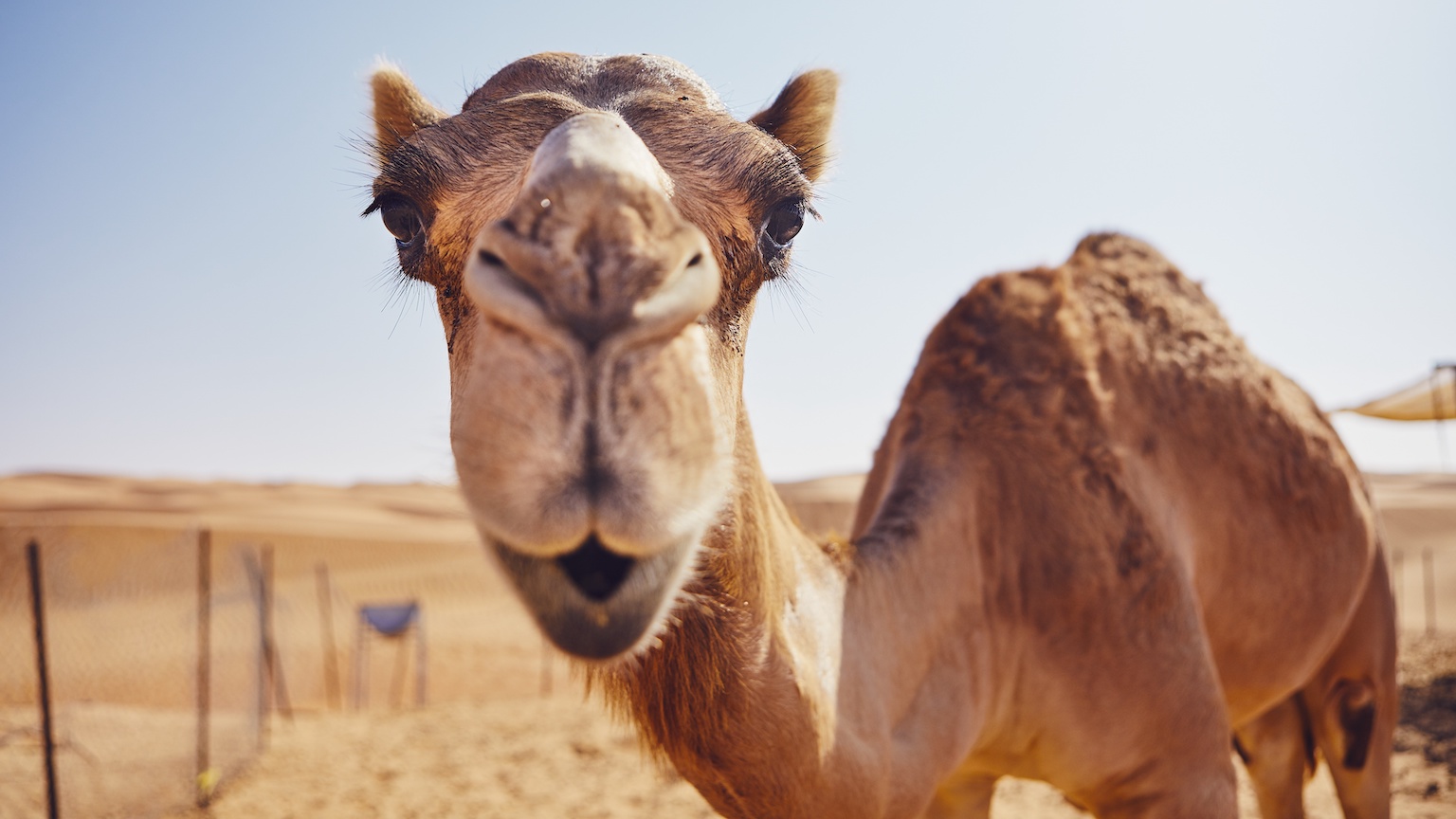How a parasite can determine the fate of a whole pack of wolves

- The parasite Toxoplasma gondii induces risk-taking behavior in warm-blooded species.
- Researchers have documented the first evidence that T. gondii affects behavior in gray wolves in Yellowstone National Park. Infected wolves are more likely to disperse from a pack and become pack leaders.
- The study provides insight into how parasites can regulate individual behavior and community-level interactions in wild settings.
When your house cat saunters to the litter box for its post-Fancy Feast pause, it may leave behind more than just some undigested pâté. Toxoplasma gondii is a parasite that can only sexually reproduce inside a feline host, and the feline will excrete T. gondii eggs in its feces. Other warm-blooded animals such as mice and humans can become infected with the eggs if they drink contaminated water or interact with the cat’s feces in some other way. (For this reason, the CDC recommends that pregnant women avoid changing the litter.)
When carried by an intermediate host — any warm-blooded animal that is not a feline — T. gondii causes toxoplasmosis, a condition that affects several hormonal pathways, but especially those regulating dopamine and testosterone.
Toxoplasmosis is linked to increased risky behavior. For example, rats infected with the disease do not avoid cats. In fact, they are attracted to the scent of their foes. The rats follow their olfactory cues, and soon a cat gets a tasty treat. Now the single-celled protozoan is back at home in a feline host, where it can mate and reproduce. Like a puppeteer, T. gondii is willing these two hosts to do its bidding, regulating an ingenious feedback cycle to its own benefit.
Toxoplasmosis on the mind
Researchers have extensively studied T. gondii’s effects in domestic settings, but its impact on wild populations remains relatively unexamined. One study found that hyenas infected with toxoplasmosis were bolder and more likely to be killed by African lions. This study was one of the first to link T. gondii to feedback loops in wild ecosystems, suggesting the same may occur in any area where a feline coexists with an intermediate host.
In North America, gray wolves (Canis lupus) reign as a quintessential apex predator. In Yellowstone National Park, gray wolves intersect with cougars, a definitive host of T. gondii. Transmission pathways probably exist, with the cougar as the primary host and the wolf as an intermediate host.
Researchers from the Yellowstone Wolf Project set out to explore that possible connection, investigating whether T. gondii affects wolf behavior. They found that T. gondii was ubiquitous within the ecosystem and that infected wolves were far more likely to take more significant risks like dispersing from a pack or seeking to become a pack leader. These parasite-mediated behavioral changes can influence the boldness and health of an entire pack. The researchers detail their findings in the journal Communications Biology.
Cougars, wolves, and the parasites that bind
Cougars (Puma concolor) overlap with wolves significantly at Yellowstone, because they hunt the same prey. Scientists suspect that T. gondii transmission may have increased in areas where wolves and cougars overlap, with the protozoan spreading by direct or indirect contact. To test this hypothesis and study its implications, the researchers leveraged 25 years of observational data and blood analysis to relate wolf behavior with parasite load.
In 1995, biologists reintroduced wolves to Yellowstone after rigorous hunting and other pressures had eradicated local populations. The reintroduction program was paired with extensive monitoring efforts to help researchers understand wolf movement and ecology. As part of the program, researchers sampled blood for disease screening.
For the present study, the scientists retested 229 wolf individuals for the presence of T. gondii antibodies. Overall, 25% of males and 31% of females tested positive for T. gondii antibodies in their blood, suggesting they were infected at one point. The researchers also performed a similar test on cougars. Out of 62 tested cougars, 51.6% tested positive.
Researchers also directly observed wolves from 1995 to 2021. Experts scored individual wolves as pack leaders and documented other observations, such as dispersal and cause of death. The scientists associated three wolf behaviors as evidence of greater risk-taking. The first was dispersing from a pack, the second was a wolf becoming a leader, and the third was approaching people or vehicles. The team hypothesized that infected wolves would be more likely to engage in one or all these behaviors.
Risky business
Overall, seropositive wolves — those with detectable antibodies indicating infection at some point — were more likely to become pack leaders than seronegative wolves. The connection held even after the researchers accounted for other demographic factors that may affect risk-taking, such as sex or social status. A seropositive wolf was 46 times as likely to become a pack leader when compared to a seronegative wolf. A similar pattern exists for dispersal. The chance that a seropositive wolf would leave its original pack was 11 times as high as that for a seronegative wolf. Infection was not related to whether a wolf would approach humans or cars.
These trends persisted in both sexes and across all age groups.
Rising to the status of pack leader has enormous benefits for the individual. Still, like most positions of power, the benefits come at a considerable cost. Pack leaders must show what they’re made of in direct fights. They also have to disperse away from the safety of one pack to start their own. Overall, T. gondii’s benefit to an individual rests on whether infection tips the scale toward beneficial or adverse risk-promoting activities.
Pack effect
Wolves are well known for their social structure and their allegiance to pack leaders. Behavioral changes triggered by a parasite in a single wolf will influence the entire pack, and uninfected individuals are likely to emulate the risky behavior of the alpha. A more risk-prone, assertive pack could help the parasite reproduce by increasing the chance that wolves and cougars will overlap.
The authors write that “these two life history behaviors [dispersal and becoming a pack leader] represent some of the most important decisions a wolf can make in its lifetime.” Interestingly, an invisible captain at the helm of the wolf’s brain seems to be calling the shots. This research demonstrates that toxoplasmosis, and perhaps parasites in general, can influence individual and group-level decision-making, highlighting how important it is to consider community parasite load in ecological studies that inform conservation efforts.





